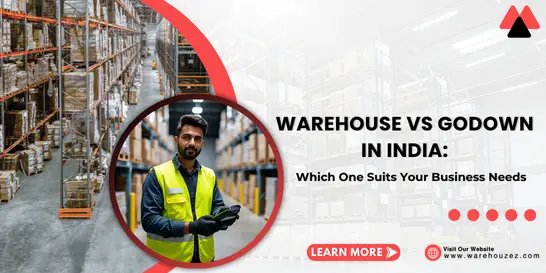Fourth-Party Logistics (4PL): Advantages and Disadvantages
Fourth-Party Logistics (4PL): Advantages and Disadvantages
In today's times, 4PL logistics is revolutionizing the way businesses manage their supply chains. Outsourcing has become a go-to solution for businesses. It helps them streamline operations and stay competitive. But when it comes to outsourcing, there are two options: third-party logistics (3PL) and fourth-party logistics (4PL). 4PL is an extension of the traditional 3PL model. Unlike 3PL, which handles specific tasks, 4PL takes charge of the entire supply chain process. It offers countless benefits to businesses of all sizes and types.
In this blog post, we will delve deeper into 4PL, its advantages, and its disadvantages. So, let's get started!
What is Fourth-Party Logistics (4PL)?
We can define fourth-party logistics as an evolution of third-party logistics model. In this arrangement businesses outsource their supply chain management operations to external service providers. They coordinate everything from warehouses to transportation. They provide specialized expertise and innovative solutions to meet the unique needs of each client. Businesses across various industries can benefit from this approach, including e-commerce, manufacturing, and retail. Going with this model can bring consistency and cut costs. It can also help enhance customer satisfaction and increase efficiency.
Here's a quick look at the specialties of 4PL logistics companies:
Attention to details, ensuring service quality and timely delivery to customers.
Coordination with multiple vendors to streamline operations and reduce costs.
End-to-end solutions to manage the entire supply chain process.
Efficient inventory management, network analysis, and strategic planning to enhance operational efficiency.
Handling inbound, outbound, and reverse logistics, ensuring smooth flow throughout the supply chain.
Advantages and Disadvantages of 4PL Logistics
Advantages
Here's a look at the advantages of fourth-party logistics:
1. Access to Innovative Solutions and Technology: 4PL logistics companies invest in industry-edge technology and innovative solutions to optimize supply chain processes. By partnering with 4PLs, businesses gain access to these advanced tools and technologies. This way, they can improve visibility, make better decisions, and drive continuous improvement initiatives.
2. Centralized Management: In this setup, businesses can hand over the entire supply chain to a single entity. This centralized approach allows for better coordination and management of logistics activities.
3. Cost Savings and Efficiency Gains: By outsourcing logistics, businesses can streamline operations and reduce overhead costs. With their expertise in process optimization and resource management, 4PLs can identify areas for cost savings and efficiency gains.
4. Expertise and Specialization: 4PL logistics companies bring a wealth of expertise and knowledge to the table. They specialize in logistics, strategic planning, order processing, and warehouse management. They leverage their experience to optimize processes and overcome challenges.
5. Flexibility and Scalability: This model offers businesses the flexibility to scale their operations according to changing market demands. Whether it's scaling up during peak seasons or downsizing during slow periods, 4PLs can adapt their services to meet the needs of their clients.
6. Focus on Core Competencies: By outsourcing, businesses can focus more on their core competencies and strategic initiatives. This allows them to allocate resources more efficiently and drive growth in their respective industries.
7. Improved Customer Service: A well-managed supply chain can lead to improved customer satisfaction. These service providers focus on accurate order fulfillment, ensuring timely delivery, and effective communication throughout the supply chain. This translates into enhanced customer experience.
8. Global Reach: Many 4PLs have a global and nationwide network of warehouses and transportation partners. This enables businesses to expand their reach and increase their customer base. By leveraging the network of 4PLs, businesses can navigate complex customs regulations, transportation routes, and more effectively.
9. Performance Measurement and Continuous Improvement: These service providers implement robust performance measurement systems to track key metrics and KPIs. By analyzing these metrics, businesses can identify areas for improvement and implement initiatives to enhance supply chain efficiency.
10. Risk Mitigation: Outsourcing logistics to a 4PLs can help businesses mitigate risks associated with supply chain disruptions. With their expertise and network of resources, 4PLs can proactively identify potential risks and implement plans to minimize their impact.
Disdvantages
Here's a look at the disadvantages of fourth-party logistics:
1. Dependency on External Providers: Relying on a 4PL provider for supply chain management introduces a level of dependency on an external entity. Any disruptions or issues with the service provider can directly impact the business's operations and reputation.
2. Integration Challenges: Integrating fourth-party logistics into existing processes can be complex and time-consuming. Businesses can encounter compatibility issues, data transfer challenges, and resistance from internal stakeholders.
3. Reduced Control: Outsourcing to a 4PL can mean losing some control over the supply chain. Businesses may find it challenging to maintain oversight and influence over critical decisions.
3PL vs 4PL: A Comparative Analysis
In 3PL vs 4PL, the main difference lies in their level of involvement as well as their service offerings. 3PLs focus on specific tasks, such as warehousing, transportation, and order fulfillment. They act as intermediaries between businesses and customers, offering specialized services to meet specific needs. In contrast, 4PLs take on a more holistic approach, overseeing the entire supply chain process. They serve as strategic partners, coordinating multiple tasks and managing the entire logistics network on behalf of the client. While 3PLs offer specialized expertise in individual functions, 4PL providers offer comprehensive solutions, leveraging expertise, technology, and resources to optimize the supply chain. The choice between 3PL and 4PL depends on the level of control desired by the business and the specific goals of the organization.
Concluding Remarks
Fourth-party logistics presents businesses with both advantages and disadvantages to consider. 4PLs offer centralized management, expertise, flexibility, and scalability. Yet, it also comes with potential challenges such as reduced control, dependency on external partners, and integration complexities. Despite these drawbacks, the strategic benefits of outsourcing logistics to a 4PL provider can outweigh the risks for many businesses. By carefully evaluating their specific needs, and considering the capabilities of potential providers, businesses can navigate the complexities of the 4PL landscape. They can leverage its advantages to optimize their supply chain operations. The decision to embrace this should be made with a clear understanding of the potential benefits and challenges it entails.



